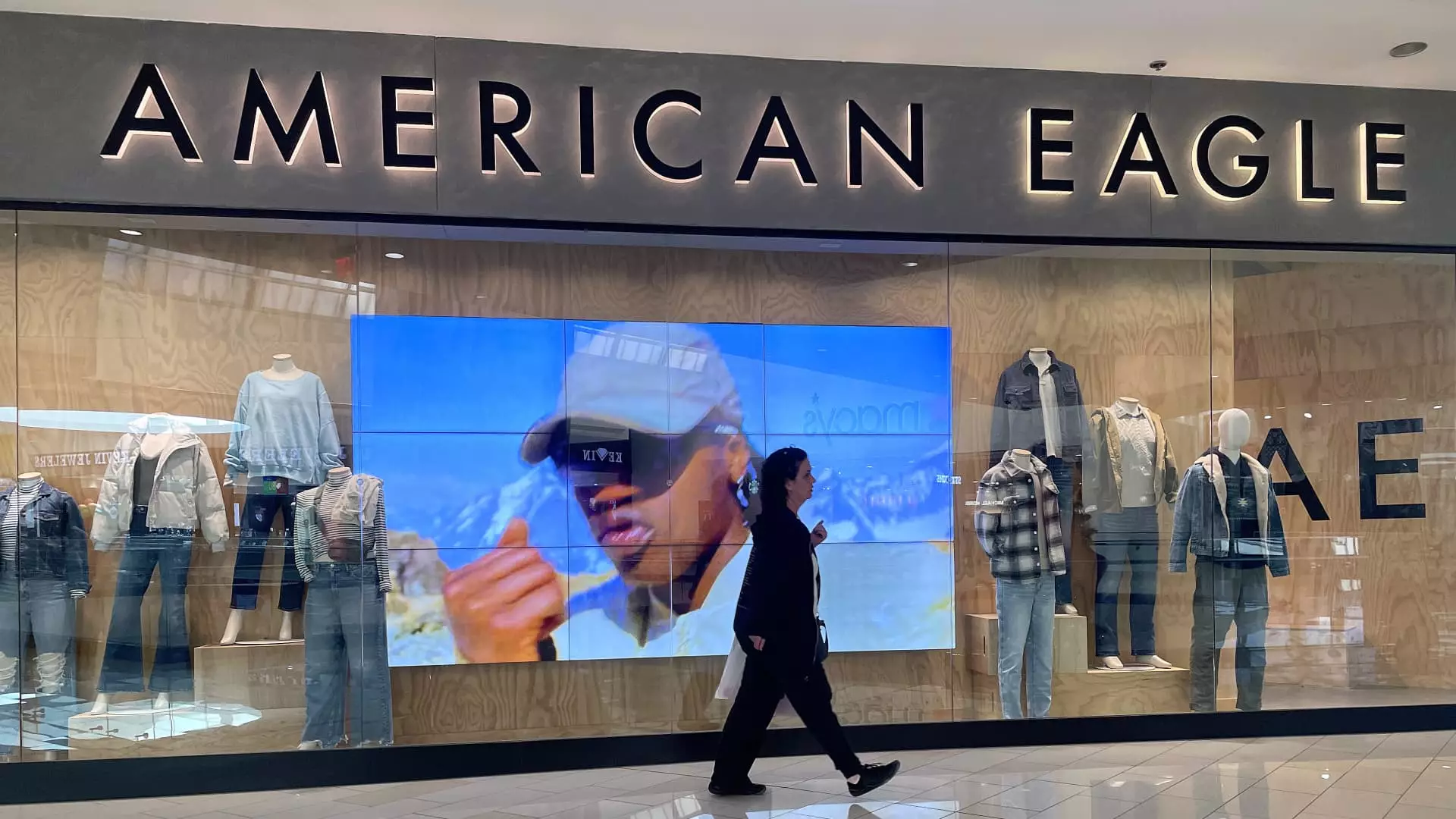In a significant legal move, American Eagle Outfitters has initiated a lawsuit against the global e-commerce titan, Amazon, claiming that the latter has engaged in trademark infringement. The core of the complaint centers around Amazon’s alleged unauthorized usage of branding linked to American Eagle’s Aerie clothing line in search results, resulting in consumer confusion and the promotion of substandard imitation products. This action underscores rising tensions between traditional clothing retailers and e-commerce platforms, particularly regarding the integrity of branding and consumer trust.
American Eagle’s contention is not merely legal formalism; rather, it is highlighting a troubling trend in which consumers could unknowingly associate Aerie products with poor-quality replicas. The company’s protest reflects not just a defense of their market share, but a broader concern over the perception of brand authenticity in the age of online shopping.
The lawsuit, lodged in the U.S. District Court for the Southern District of New York, presents a series of accusations against Amazon for what American Eagle describes as “flagrant, unauthorized use” of its trademarks, specifically related to the Aerie and Offline by Aerie labels. According to the suit, American Eagle did not grant permission for Amazon to sell its products, such as yoga pants and loungewear, asserting that this decision was made deliberately to create a unique market identity for Aerie.
The suit outlines a glaring issue: consumers who conduct online searches for Aerie products on Google may encounter Amazon links that mislead them into believing they are purchasing genuine items from the Aerie line. Upon clicking these links, shoppers are reportedly directed to Amazon pages featuring only knock-offs of Aerie apparel. The lawsuit comments on Amazon’s practice of relabeling products with misspellings of Aerie’s trademarks as an intentional attempt to mislead consumers into thinking they were accessing genuine Aerie merchandise.
This legal confrontation sheds light on larger unresolved issues in the e-commerce landscape, particularly related to how third-party sellers operate on platforms like Amazon. As the marketplace has grown exponentially, so too have concerns about counterfeit goods infiltrating legitimate markets. American Eagle’s lawsuit signifies a pivotal moment for brands fighting to protect their image as they contend with technologically savvy third-party sellers who can potentially jeopardize consumer trust through imitation products.
American Eagle’s lawsuit echoes similar grievances raised in the past, wherein other brands have opted to sever ties with Amazon in response to rampant counterfeiting. Notably, companies like Birkenstock and Daimler AG have previously pulled their products from Amazon, protesting against what they termed inadequate protection against counterfeit goods. This discontent raises significant questions about Amazon’s efficacy in safeguarding brand integrity and consumer confidence.
American Eagle’s call for injunctions and financial damages against Amazon is not merely a legal maneuver; it is a clarion call for corporate accountability and consumer protection in e-commerce. As traditional retailers navigate this brave new world of online commerce, they face unique challenges that require robust protections for their brand identities. The lawsuit against Amazon serves as a reminder of the complexities involved in digital marketplaces and the urgent need for clearer frameworks to govern brand protection.
In an era where online shopping is inexorably intertwined with everyday life, ensuring that consumers have access to authentic brand experiences should be a priority for all e-commerce companies. The outcome of this lawsuit could set a pivotal precedent, determining how e-commerce platforms navigate the intersection of advertising, trademark protection, and consumer rights moving forward. As the details unfold, the fashion industry along with consumers will keenly observe the developments in this crucial legal confrontation.


Leave a Reply